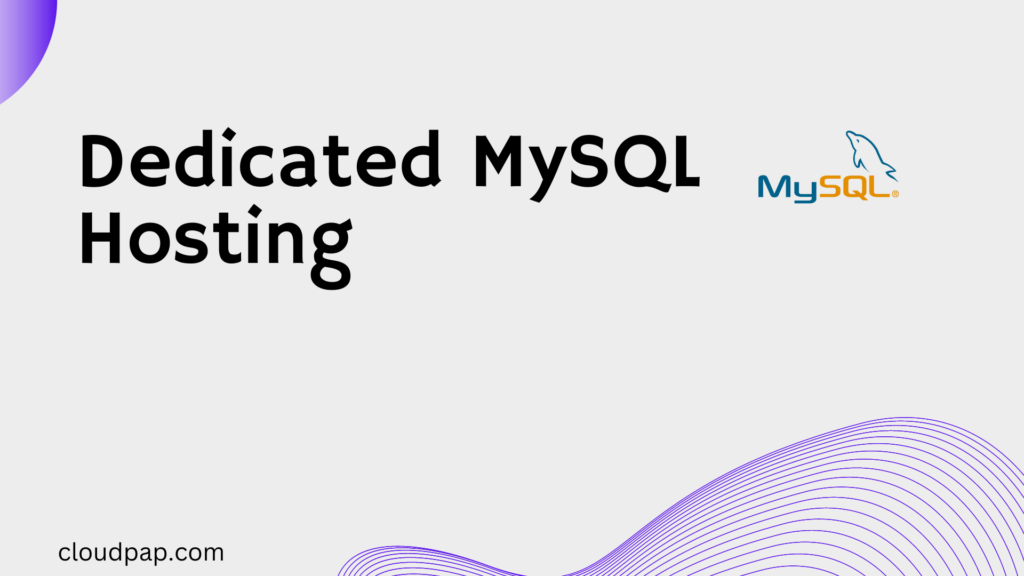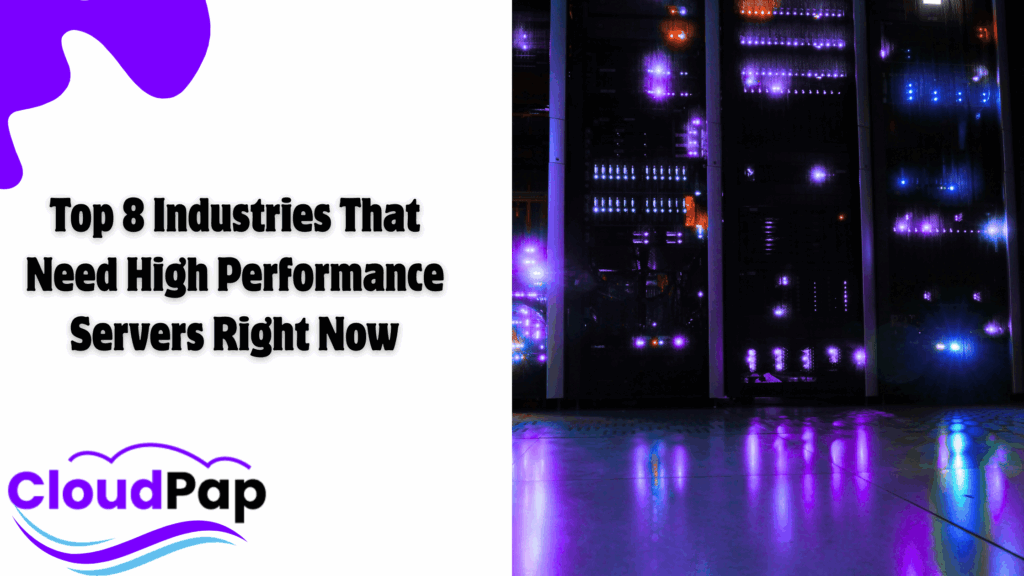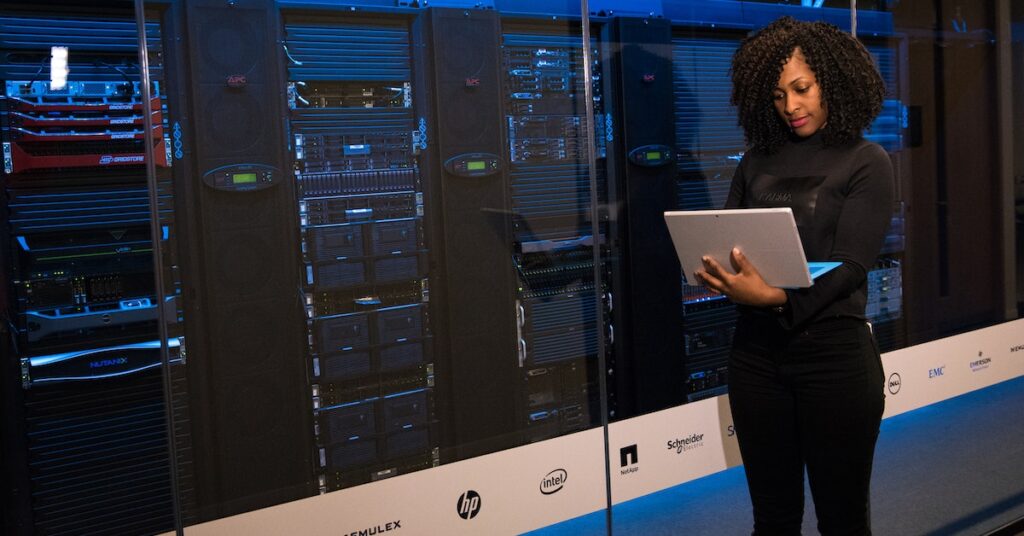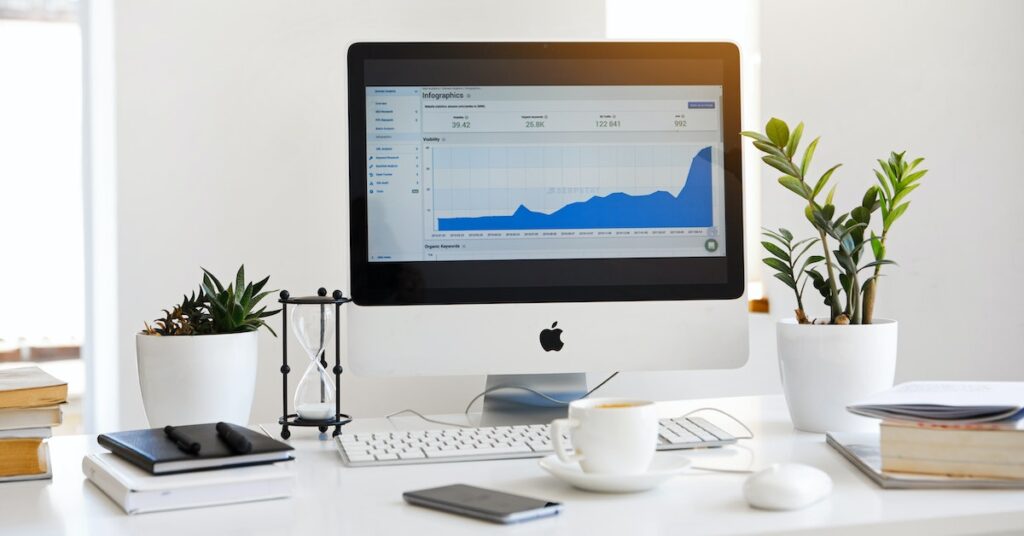For accounting firms, the cloud provides a secure, efficient, and cost-effective way to store data and manage operations on a global scale.
This article will provide an overview of the key elements of cloud computing so that accounting firms can understand how they can benefit from this innovative model.
We will cover topics such as what cloud computing is, its security features, pricing models, and more.
What is Cloud Computing?
As defined by the National Institute of Standards and Technology (NIST), cloud computing is a type of on-demand access to shared resources such as networks, servers, storage applications and services.
These resources can be quickly configured and used.
Essentially, cloud computing can be pictured as huge groups of scattered and super-sized servers operated by Cloud Service Providers (CSPs) like CloudPap and Amazon AWS, which also offer hosting services.
Accounting firms that use cloud computing are now embracing a ‘cloud-first’ strategy when setting up new systems or replacing older ones.
They are transitioning from their onsite servers to the cloud and accessing their programs, data files, and other information via the cloud, regardless of the device they use and any time they need to.
This is done through public, private, community, or hybrid cloud infrastructure.
What Is the Difference Between Traditional Accounting and Cloud Accounting Software?
Traditional accounting software is desktop-based, meaning it can only be accessed from the computer on which it was installed.
This type of software requires manual updates, data backups, and upgrades.
Not to forget, they can be quite expensive to purchase and maintain.
On the flip side, cloud accounting software is web-based and does not require installation on a specific device.
Instead, users can access their information from any internet-connected device with a browser.
Cloud accounting also eliminates the need for manual updates and data backups, as this is handled by the cloud provider automatically.
Unlike traditional systems, cloud accounting tends to cost less upfront than traditional accounting.
In fact, most providers offer subscription models with lower monthly fees than purchasing outright licenses for traditional systems.
Why are CPA Firms opting for Cloud Solutions?
a). To facilitate remote access to financial documents
With cloud solutions, accounting firms can securely store sensitive data and allow their clients to access and download documents from any device with an internet connection.
It also comes with variety of features, such as real-time collaboration and streamlined workflow management, that help reduce costs for CPA firms.
CPAs can now communicate with clients more efficiently by allowing them to share information and documents in real-time quickly.
This helps improve customer satisfaction while providing accountants more time to focus on other aspects of their job responsibilities.
b). To use cloud servers as backups for their onsite ones
Cloud servers provide a great backup solution for accounting firms that use onsite servers.
They are cost-effective, reliable, and secure.
As the cloud is accessible from anywhere with an internet connection, it makes it easy to access backups anytime quickly.
Cloud servers also allow for automated backups, which save time and resources.
And thanks to its scalability, accounting firms can adjust depending on the firm’s needs at any given time.
c). Go paperless and save mother nature
Going paperless is an excellent way for accounting firms to save money and help protect the environment.
CPA firms can reduce the usage of natural resources while also freeing up space in their offices by eliminating heavy reliance on physical copies of documents and records.
And many accounting firms are now beginning to recognize the benefits of using cloud computing systems for storage and processing rather than relying on bulky physical record keeping.
Cloud-based services provide a secure and reliable platform for storing financial data, allowing users to access it from any device with an internet connection.
This ensures that sensitive information remains protected from unauthorized access and reduces the chance of any data loss due to paper-based filing systems.
Accountants can be more flexible when managing customer accounts and sharing documents with colleagues.
What are the models of cloud solutions?
a. Infrastructure as a Service (IaaS)
IaaS is essentially a service where customers can access their data, software and storage remotely over the internet rather than on-site.
With this model, the cloud provider hosts and maintains all of the hardware and software components needed to run an accounting firm’s operations in its own data centers, while providing customers with secure access to these services through a web portal.
Accounting firms can then use this model to simplify IT infrastructure management, minimize downtime and ensure scalability.
They can benefit from cost savings as they only need to pay for what they use and don’t have to purchase any physical hardware or software or hire personnel for maintenance purposes.
It allows firms to outsource IT resources that would otherwise be costly or difficult to manage internally.
b. Platform as a Service (PaaS)
Platform as a Service, or PaaS, is a cloud computing model that allows users to develop, run and manage applications without having to worry about the underlying infrastructure.
This type of service can be incredibly beneficial for accounting firms as it enables their teams to collaborate easily on projects while providing them access to powerful computing resources.
It also allows organizations to scale quickly and efficiently since they can instantly access more computing power when needed.
Examples of PaaS solutions include AWS Elastic Beanstalk, Google App Engine, Microsoft Windows Azure, and Red Hat OpenShift on IBM Cloud.
Accounting firms can use these solutions in various ways, such as developing custom financial applications tailored specifically for their business needs.
They can also access a wide range of third-party applications already in the cloud, like accounting systems and payroll management tools.
These solutions help streamline processes and make it easier for staff members across different departments to work together more productively.
c. Software as a Service (SaaS)
Another great cloud service for accounting firms is SaaS.
Software as a Service (SaaS) is a cloud delivery model that provides users with access to software applications over the internet.
Organizations primarily use it to avoid purchasing and maintaining costly IT infrastructure while allowing them to use the same software they would have in an on-premise environment.
With this cloud model, firms can access accounting software applications such as accounts payable and receivable, payroll processing, tax filing, data analytics tools, and financial reporting tools.
What are the benefits of using the Cloud for Accounting Companies?
The advantages of cloud accounting are numerous, including:
a). Ease of Access
As a finance and accounting professional of cloud accounting firms, all you need is an internet connection to access your organization’s financial data, enabling you to work from home or while travelling.
b). Increased Collaboration
Partnering has become essential in the wake of the pandemic when more businesses are transitioning to remote working from home.
Cloud accounting provides the benefit of collaborating and coordinating efficiently without any decline in productivity.
c). Reduced IT Cost
Cloud computing offers a cost-effective alternative to building up IT infrastructure and the regular maintenance required for on-site IT systems.
By taking advantage of cloud solutions, CPA firms can benefit from the same quality of IT services at a fraction of the cost.
d). Security of Financial Data
Accounting data remains secure and protected in the cloud.
Thanks to a high encryption level and multiple authentication layers, eliminate any worries or concerns from daily operations.
e). Backup of Data
Cloud accounting software offers automatic data backup, eliminating the risk of data loss due to unforeseen circumstances.
What are the risks and challenges of Cloud Computing for Accounting Firms?
Cloud computing brings numerous advantages, yet it also presents numerous challenges.
The events of the pandemic have prompted a surge in remote usage of cloud services, heightening security risks and threatening data confidentiality.
As a result, accounting firms making use of the cloud are considering either setting up their own private cloud or purchasing services from a cloud service provider (CSP), such as Microsoft Azure and Amazon AWS, to handle these dangers and difficulties.
Some of the challenges CPA firms face include:
- Potential security threats posed by the remote and external location of data storage and processing, as well as inadequate security settings, must be considered.
- Small and medium-sized enterprises (SMEs) often struggle with having limited access to expert talent and resources. This can lead to a lack of expertise, impeding their growth and development.
- Potential compliance issues related to backup services and cloud storage need to be addressed. These issues may involve the secure storage of data, access restrictions, and compliance with data protection regulations.
- Maintaining and controlling IT assets can present challenges in terms of governance. These challenges can arise from the need to ensure that appropriate procedures are in place and that IT assets are adequately managed and monitored.
Final Thoughts
When it comes to cloud computing, accounting firms are in a unique position.
They have access to abundant data and need a secure, reliable system for storing and sharing this information with their partners and clients.
Cloud computing can provide them with the tools they need to streamline their operations, improve data security, and increase efficiency across the board.
And can also help reduce costs associated with hardware and software maintenance and provide access to new features such as artificial intelligence or machine learning capabilities that can be used for more accurate financial reporting.
Related:






